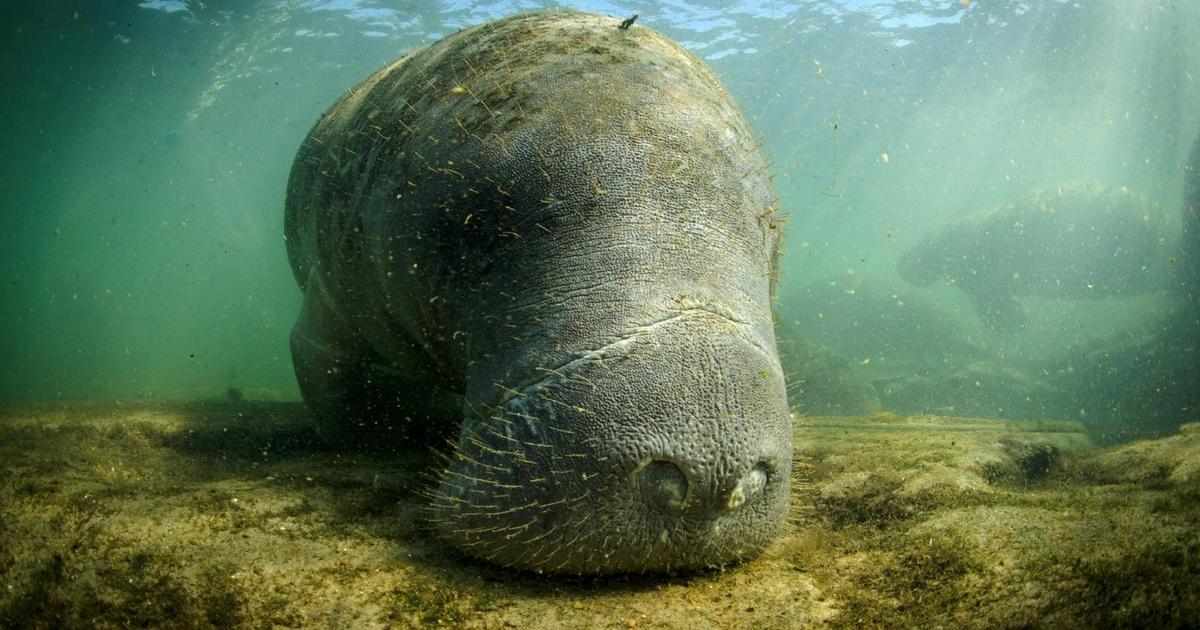TALLAHASSEE – Environmental groups and federal wildlife officials have reached a deal to upgrade habitat protections for manatees, which suffered a record number of deaths last year in Florida waters.
The agreement, announced Wednesday, requires the U.S. Fish and Wildlife Service to undertake long-discussed revisions of “critical habitat” for Florida manatees by Sept. 12, 2024.
The agreement came after the Center for Biological Diversity, Defenders of Wildlife and the Save the Manatee Club filed a lawsuit in February in federal court in Washington, D.C. The groups said they had waited more than a decade for the U.S. Fish and Wildlife Service to revise habitat designations.
“Safeguarding the places where manatees live will help put these incredibly imperiled animals back on a path toward recovery,” Ragan Whitlock, an attorney for the Center for Biological Diversity, said in a prepared statement Wednesday.
The Fish and Wildlife Service didn’t immediately respond to a request for comment.
When the lawsuit was filed, the groups argued the wildlife agency did not take final action on a 2008 petition to revise critical-habitat designations for manatees. The lawsuit described the designations as key “for ensuring the survival and effectuating the recovery of imperiled species such as the Florida manatee.”
Under the federal Endangered Species Act, the Fish and Wildlife Service designates areas of critical habitat to help in the recovery of endangered or threatened species, according to the lawsuit. The agency in 1976 designated waterways that were important areas for manatees.
But the environmental groups argued in the lawsuit that the agency did not revise the designation after changes were made in 1978 to the Endangered Species Act. They also allege that the agency did not properly act on the 2008 petition.
Pat Rose, executive director of Save the Manatee Club, said in a statement Wednesday that the agreement hopefully “signals a shift in prioritizing manatee survival and recovery.”
“The service has delayed revising critical habitat for a decade, and now the manatee’s predicament is so dire that revising critical habitat can no longer be put on the back burner,” Rose said.
The settlement said that in 2010, the federal agency, after “a thorough review of all available scientific and commercial information” found that “revisions to critical habitat for the Florida manatee are warranted.” However, at the time “sufficient funds” weren’t available and the federal agency intended to start rulemaking when it had completed higher priorities and had adequate resources.
A record 1,101 manatee deaths were reported in Florida waters in 2021, with many of the sea cows dying of starvation caused by the decline of seagrass beds that are prime foraging areas.
The state averaged 625 manatee deaths the prior five years.
“Once the species’ current critical habitat is identified, we’re hopeful that federal, state and private conservation partners can take decisive action to put the manatee back on the road to recovery,” Defenders of Wildlife Senior Attorney Jane Davenport said in a statement Wednesday.
Last month, the three groups filed a separate lawsuit in federal court in Orlando to try to require the U.S. Environmental Protection Agency re-engage in talks with the Fish and Wildlife Service and the National Marine Fisheries Service about water quality in the Indian River Lagoon, which has been the leading site of manatee deaths in 2021 and this year.
The lawsuit, which also contends sea turtles are being harmed by water degradation, alleges that water-quality standards set in 2009 aren’t being “adequately followed or enforced.” The lawsuit pointed to “unchecked pollution” in the Indian River Lagoon from wastewater-treatment discharges, leaking septic systems, fertilizer runoff and other sources that have killed thousands of acres of seagrass.
The Fish and Wildlife Service in 2017 changed the listing of manatees from endangered to threatened under the Endangered Species Act.
State and federal officials undertook an unprecedented manatee-feeding program this past winter, providing lettuce to the sea cows. Through May 27, 562 manatee deaths had been reported this year.
At the same point in 2021, 763 manatees had died.
A fiscal year 2022-2023 state budget awaiting Gov. Ron DeSantis signature includes $30 million to help manatees.



